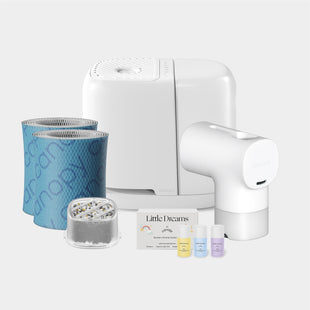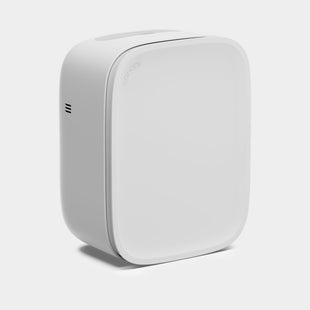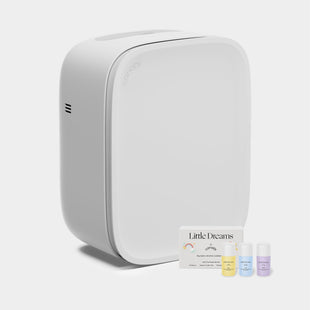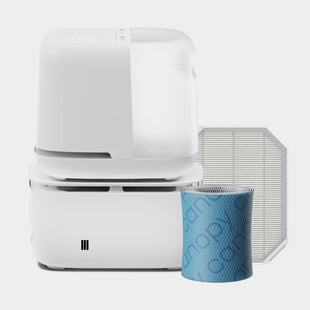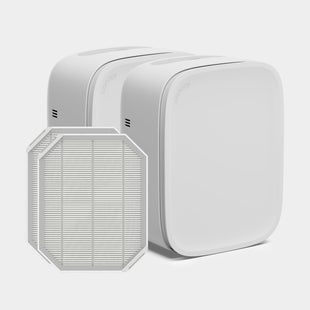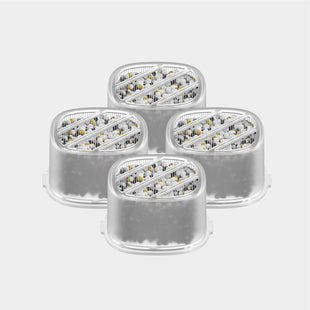Whether you’re the lead singer in a band, the star of the local theater group, or enjoy the occasional karaoke night, know that keeping your vocal cords hydrated is crucial to a good performance.
Even if you can’t carry a tune, everyone knows how much a dry throat can affect their vocal cords. How often have you woken up with a dry, scratchy throat and raspy voice after sleeping in a dry room? Breathing in air with low moisture content dries out the mucosal tissue in your throat, which affects the quality of your voice, whether you’re speaking or singing.
The good news is that there are plenty of ways to hydrate your vocal cords to help you hit the high notes without straining your voice. Before we get into them, let’s explore how your vocal cords work and why hydration matters.
How Vocal Cords Put on a Show
The vocal cords—also called vocal folds—are a muscular structure. The center is the thyroarytenoid muscle, which is covered by the lamina propria, a thick mucosal layer. A thin, skin-like layer called the epithelium covers the entire structure. When we talk or sing, the vocal folds come together, creating vibrations that produce sound. Faster vibrations produce higher-pitched sounds, while slower vibrations produce lower sounds.
When the vocal cords are dehydrated, the mucosal layer dries out, and the epithelial layer becomes irritated and swollen. The result is a lower-than-normal voice, voice cracking, or even no voice at all. As a singer, you might already know these changes can mean a subpar performance and additional strain on your vocal cords.
Preventing Vocal Irritation
Cigarettes might be part of the rockstar image, but don’t smoke unless you want your vocal cords to be extra-irritated. A glass of wine or a cocktail might help calm the nerves before a performance, but it won’t help your vocal cords. Even a cup of coffee for energy won’t help. Alcohol causes you to lose more fluid than usual, as does caffeine. Both are diuretics, meaning they can lead to dehydration.
The Role of Hydration Offstage
Eating and Drinking Properly

Maintaining supple vocal cords requires adequate hydration. While drinking plenty of water is a great start, singers must do more to protect their voices. They need to focus on their diet, habits, and environment. Drinking water throughout the day, not just when you’re thirsty, keeps you hydrated. Keep a water bottle handy so you can sip regularly.
Caffeine-free tea also provides tasty hydration. Before a performance, a cup of peppermint tea can help clear phlegm from your throat and keep your mouth from drying out. Fruits and veggies—especially melon, cucumber, and berries—provide a hydration boost, plus essential nutrients for energy.
Maintaining a Hydrated Environment
A cool mist humidifier produces clean moisture to help maintain the optimal indoor humidity level and prevent dryness. Canopy is the best humidifier for singers because we keep it simple: Our reimagined device uses sensors to control moisture output, whether you’re using it overnight or keeping one in the studio.
Remember, staying hydrated isn’t just about how much fluid you take in. It’s also about your physical activity, perspiration, room temperature, and humidity. Compensate for fluid loss with extra water and keep your humidifier filled to maintain the perfect conditions.
The original Canopy humidifier provides clean, comfortable hydration for spaces up to 500 square feet, making it ideal for bedroom and cozy studios. The large Humidifier Plus is a great addition to practice spaces up to 1,000 square feet.









